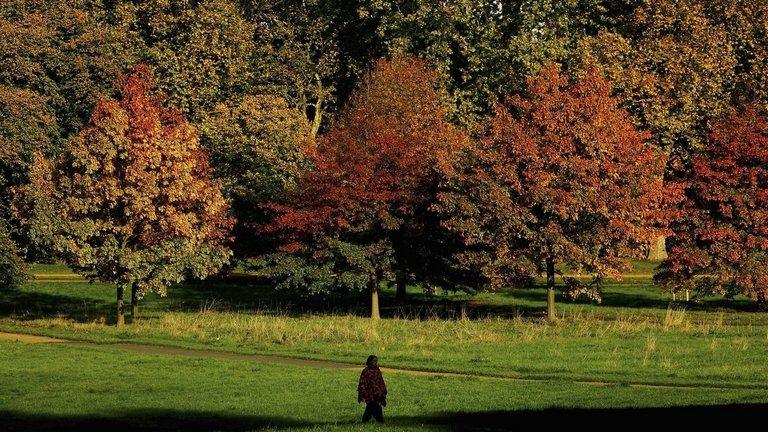Car pollution in cities - do number plate schemes work?
- Published
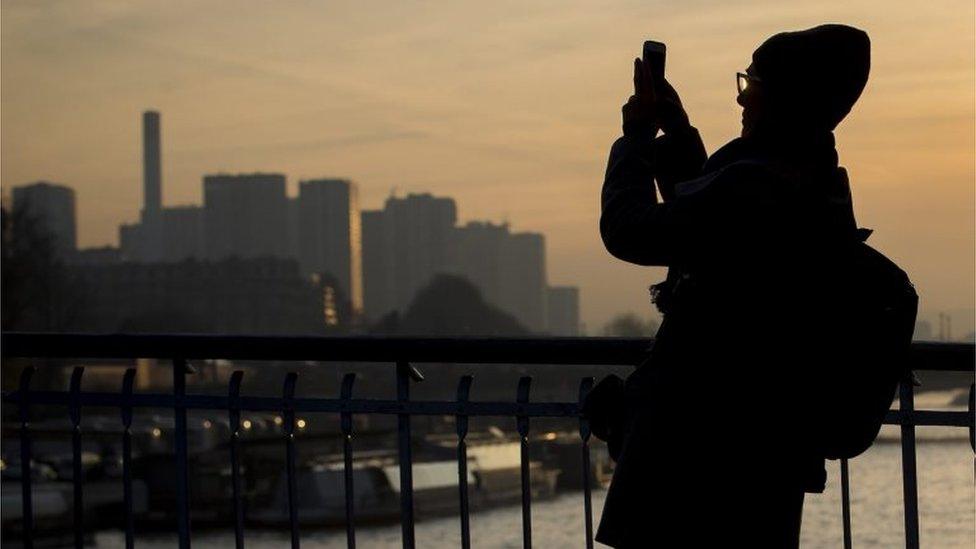
Paris was bathed in haze on Tuesday
For a second consecutive day, Paris is restricting vehicle traffic using a system of odd or even number plates. The move throws the spotlight again on the effects of traffic pollution in the world's major cities.
Why are the measures necessary?
For the past week, Paris has seen a spike in air pollution. Weather conditions are a significant factor. There is a lack of wind along with temperature inversion - warmer air sitting on top of cold. This traps pollutants.
Vehicle emissions are being blamed, especially diesels. The chemical culprits are usually particulate matter (PM) and nitrogen oxides (NOx). PM, a kind of fine soot, gets into the lungs and can cause cardiovascular problems. Nitrogen oxides worsen breathing difficulties.
The alert has been triggered, according to Airparif, the city's air quality monitoring body, because a type of particulate, PM10, is reaching levels of between 80 and 100 micrograms per cubic metre.
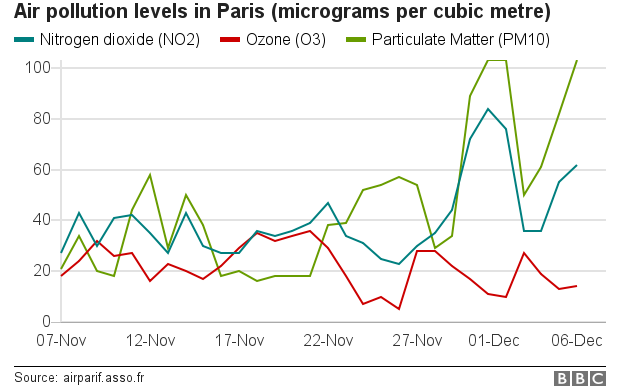
Only last month, the European Environment Agency (EEA) warned that air pollution was causing around 467,000 premature deaths in Europe every year.
What steps are being taken?
For only the fourth time in 20 years, Paris is banning vehicles according to whether they have odd or even number plates. Only those with odd numbers can use the roads on Wednesday. The day before it was the turn of even numbers. The authorities say the measure could continue on Thursday if pollution levels remain high.
"Clean" vehicles - electric for example - and buses, taxis, and police and fire brigade vehicles are exempt from the rules.
Those flouting the ban face a €22 ($24; £19) fine, and clamping or tow-away.
Paris is not the first city to take such action. Athens began using alternate number plate restrictions in the 1990s and Delhi introduced them a year ago.
Lyon, France's second city, has announced it will be doing the same as Paris from Friday.
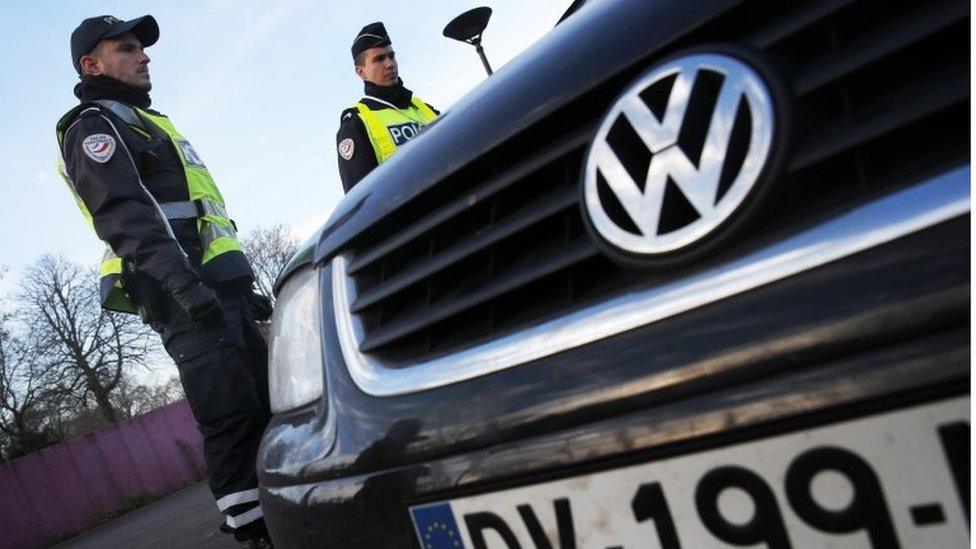
Those contravening the regulations in Paris face fines
Does it work?
Airparif reckons that similar measures used in March 2014 led to a 2% reduction in pollution by midday. Close to major traffic routes, the reduction was 6% and during rush hour on the Paris ring road particulate levels fell by 20%. Rush hour levels of nitrogen oxides fell by as much as 30%, according to Airparif.
Alan Andrews, air quality lawyer with ClientEarth, says such measures can have an effect.
"Introducing odd and even number plate rules to combat pollution would certainly have an impact, to some degree, on harmful emissions because of the reduced number of vehicles allowed on the roads at any one time.
"It's a method which has been used in Beijing and Delhi for instance. The problem is that motorists might try to get round the rules by buying more than one car and having odd and even number plates in the household."
Research carried out on a similar system used in the Colombian capital, Bogota, external, suggested this very problem.
Assessing whether the system of odd-even number plates worked in Delhi is tricky, says Alan Andrews, because the city is contending with many other sources of pollution.
Another complicating factor is that particulates breathed in in one country can in fact have come from another.
Mr Andrews suggests more sophisticated approaches, too, such as London's move to discourage unnecessary journeys during the 2012 Olympics, as well as more wide-ranging international measures to curb pollutants.
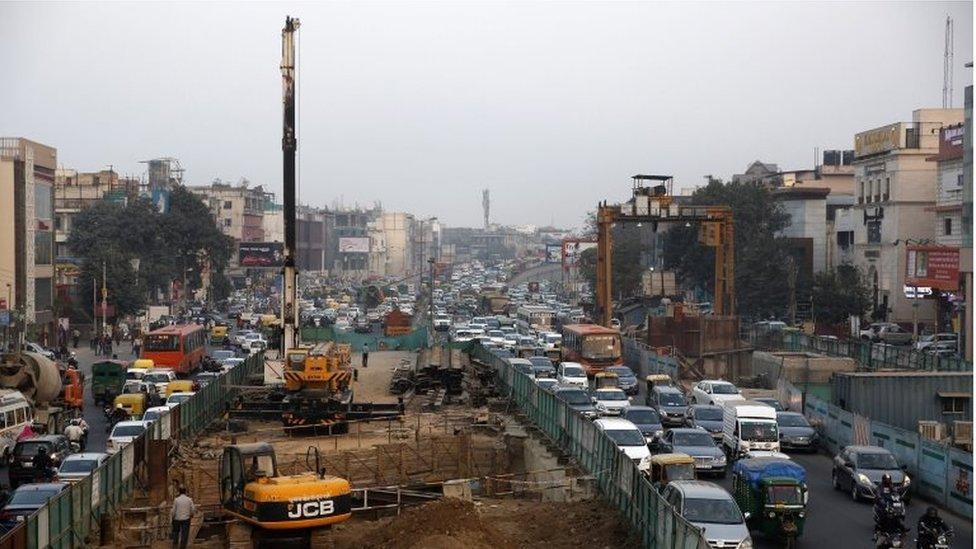
Delhi has been using similar measures
What are the costs?
In Paris considerable.
Public transport is free during restrictions on private road vehicles, costing €4m a day in 2014, according to the city authorities.
Tuesday's use of the alternate number plate system caused severe traffic jams, a cumulative 375km (233 miles), characterised as "exceptional" by officials.
What are the alternatives?
Paris, like several other cities, including London, is looking into tightening restrictions on more-polluting vehicles on a permanent basis, using low emission zones.
From January, vehicles in Paris will have to display a sticker detailing how much pollution they emit.
Older vehicles, those registered before 1997, will be banned from most of Paris during working hours. Lorries and coaches registered before 2001 are already banned.
Several experts and officials say that low emission zones are a preferable solution as they force motorists to buy cleaner cars.
- Published2 December 2016
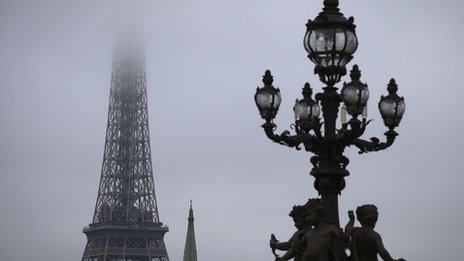
- Published31 October 2016
